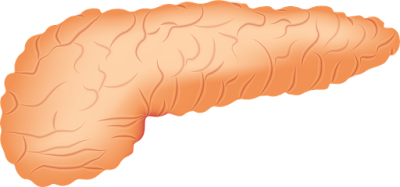How to live after a heart attack?
Life after a heart attack. How to live?
A heart attack, which is usually a reaction of the body to stress. It is also favoured by alcohol abuse, smoking, poor diet or sedentary lifestyle. This is a traumatic event that has a negative impact on the patient and his or her relatives. Usually, this moment is a significant change in the life of every person and their perception of the surrounding reality.A heart attack is usually the beginning of a new life, which is usually completely different from the one before the illness. The time when the patient is in the intensive care room is the time when he or she experiences a lot of emotions. Fear and fear for oneself and one's loved ones dominate.
Heart attack and depression
Many people become depressed during hospitalization because they lack the willingness to live and hope that it can be normal. Does myocardial infarction always mean the end of the joy of life? Doctors and specialists say unequivocally that they do not.The patient's approach is very important, but also the support he receives not only from his relatives, but also from the medical staff. The post-infarction time is particularly difficult for people who have an active working life. For people in high positions, this is the time for a test. If stress takes over their lives again, another heart attack can result in death.
On the other hand, people who performed physical work before their illness usually have to take into account that they are in for a pension, because they will not be able to exceed a certain threshold of fatigue caused by effort until the end of their lives.
Effort for the heart
What should people who have had a heart attack do about it? First of all, slow down and change certain habits, which in turn means a healthy lifestyle. Life after a heart attack is different, which does not mean it is worse. The basis is a well-balanced, low-fat diet, rich in vegetables, which is heart friendly. A moderate but systematic physical effort is also necessary, which also helps to maintain an optimal body weight.What else matters?
It is very important that the patient gives up smoking cigarettes or excessive consumption of alcohol and other stimulants. It is important that the patient himself, but also his relatives, notice all the symptoms of depression, which are very destructive. Very often it turns out that the help of a specialist is necessary. For many patients, as well as their partners and partners, the fact that myocardial infarction does not have a negative impact on intimate life. The blockade against close-ups is primarily the medicine and fears, and not the actual medically justifiable reasons. The patient should consult a physician before returning to activity.
What diet after a heart attack?
A post-heart attack diet should be introduced especially in those people in whom the causes of the heart attack lie in obesity or overweight.
An unhealthy diet, the consumption of irregular meals, rich in animal fats and an incorrect balance of vitamins and micronutrients usually causes a deterioration in health. As the causes of a heart attack usually oscillate around cholesterol, the first step for a heart attack survivor should be to reduce the supply of this substance to the body. Otherwise, even cholesterol-lowering drugs will not be of much use.
The diet should be introduced in principle in all people who have suffered a heart attack. If the person in question has not suffered from obesity or raised cholesterol, the diet is adjusted to provide the body with additional substances that are beneficial to the cardiovascular system and heart. In this way, the condition of organs at risk of disease and damage is increased by providing the appropriate supplements with the diet.
Dietary rules after a heart attack
The diet after a heart attack should, above all, be well thought out. As with any diet during the rehabilitation period, it is essential to eat regular, small but more frequent meals which will provide the body with the necessary substances and at the same time guarantee a feeling of satiety. If the right diet in terms of ingredients is not followed, gastrointestinal problems may result.
It is the cardiologist who decides on the calorie supply of the diet after a heart attack. This depends, among other things, on the exercise test, which determines what physical activity the patient should pursue. In some cases, it is possible to obtain sample diets for heart attack patients on site at the cardiology clinic. Other facilities usually have an experienced dietician who, after reviewing the patient's medical records and rehabilitation recommendations, will be able to adapt an appropriate dietary plan for the patient.



Comments
Post a Comment